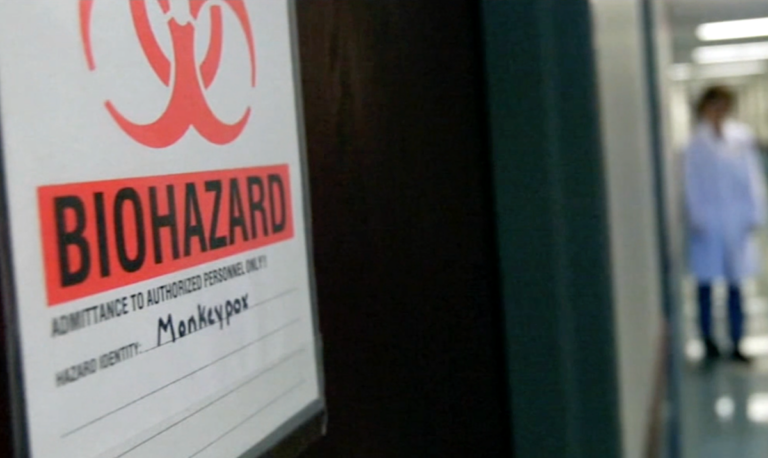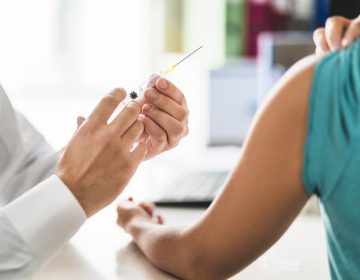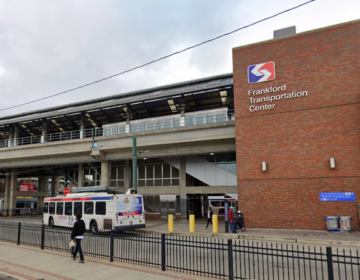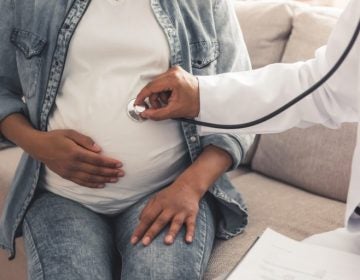Philadelphia receives 1,605 monkeypox vaccines, with more on the way
Doses will be provided only to those who set appointments and individuals with a higher risk of catching the virus.

(6abc)
The Philadelphia Health Department is set to provide monkeypox vaccines to people at high risk of being infected.
Approximately 1,605 doses of the monkeypox vaccine known as JYNNEOS will be available from the health department. However, doses will be provided only to those who set appointments and individuals with a higher risk of catching the virus, which includes people identified as being in close contact with someone who has tested positive for monkeypox.
The Health Department’s Director of Disease Control, Coleman Terrell says monkeypox is a rare, but potentially serious infection. However, it is also preventable.
“Philadelphia has recently been allocated doses of vaccine that can help protect those who may have been exposed to monkeypox,” Terrell said. “We believe that with a targeted distribution strategy, we can help contain the outbreak and continue to protect those in our community.”
The vaccine requires two doses to be considered fully protected. The second dose is recommended to be taken 28 days following the first injection.
The city had previously received 225 doses of monkeypox vaccine from the federal government. Another 1,020 additional doses will be delivered next week. As more doses become available, the Health Department will continue to expand the vaccine program.
The CDC says many of the reported cases nationally have been among gay and bisexual men. However, it also notes that the virus can be acquired by all people, regardless of gender identity or sexual orientation. Philadelphia’s Deputy Director of LGBT Affairs Erik Larson says the department is “letting equity guide” the decision-making process.
“As we wait for more doses of vaccine to become available from the federal government, we encourage individuals to make safer personal choices where possible,” Larson said. “Although monkeypox isn’t considered an STI, we always encourage individuals to have open conversations with their partners in order to increase safety and mitigate risk.”
Monkeypox is spread in several ways:
- Direct contact with an infectious rash, scabs, or bodily fluids.
- Respiratory secretions during prolonged, face-to-face contact, or during intimate physical contact, such as kissing, cuddling, or sex.
- Touching objects or fabrics such as clothing or linens that previously touched the rash or bodily fluids of someone with monkeypox.
- Being scratched or bitten by an infected animal.
The Health Department also launched a new blog post that provides advice for people who may have been exposed, and for those who may be experiencing symptoms of monkeypox.
If a person is exposed to someone with monkeypox, they should call the Health Department at 215-685-5488 immediately. The Health Department will ask about the exposure and work with that person to set up an opportunity to receive a vaccine to help keep from getting monkeypox.
As of Tuesday, 33 cases have been identified in Philadelphia. Last Friday, that number was 16.
Cases are on the rise worldwide. The World Health Organization reported a 77% weekly increase in confirmed infections last week, to more than 6,000. Moreover, scientists warn that it’s likely cases are being undercounted. Children and people with immune deficiencies may have more severe cases, but the disease is rarely fatal. WHO said three people have now died in connection with the outbreak, all of them in Africa.

Get daily updates from WHYY News!
WHYY is your source for fact-based, in-depth journalism and information. As a nonprofit organization, we rely on financial support from readers like you. Please give today.






